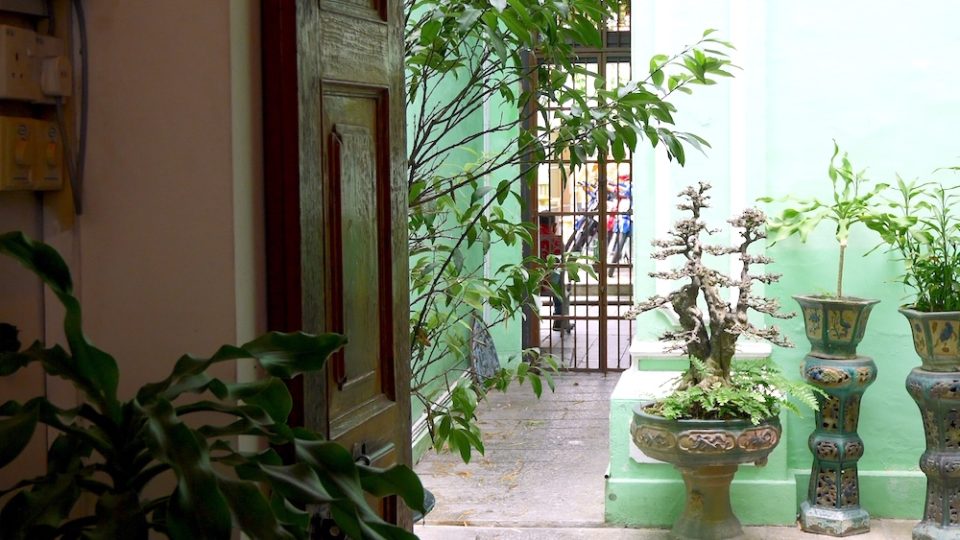[By Victoria Schmierer]
Are we all just a bunch of addicts? A few months ago I had the pleasure to host another meet-up on positive psychology. This was the first meet-up where I decided to focus on the topic of eudaimonic happiness. This type of happiness is often described as the happiness experienced from living a life aligned with ones’ values, serving a purpose which is higher than oneself. For those who know me they also know that I grew up in a family, who as much as living a life of meaning, has a big passion for the hedonic life. Good food, good drinks, you basically will not walk out of our family home without my dad forcing you to try his favourite new Grappa liquor and laughing and joking the night away. Let’s face it — hedonism, a more short-term type of happiness or pleasure, is fun. I love going out, dancing, having a great time and for this brief time not worrying too much about the future.
When I observe my generation, I observe a fierce dedication to hedonism. After all I’m working at a fashion company and quite often the conversation will shift to who wore what latest shit at the past Grammy awards.
At the same time I observe something else. Which is that, although my peers have largely grown up in a very privileged western society, are independent with a job that pays the bills and the regular easyJet ticket to a weekend in Tel Aviv or Lisbon, there exists a latent mood of dissatisfaction.
Last year I read Viktor Frankls ‘Man’s search for meaning’. Frankl, an Austrian Psychotherapist, who had lost most of his family in the Holocaust, wrote this book shortly after surviving various concentration camps. The book touched and saddened me deeply, as it offers Frankls first hand experience in the concentration camps, as well as his observations and analysis of his fellow inmates’ ways of coping with their everyday lives in the camps. He’s asking the question of why some people were able to survive the camps not just physically, but also managed to maintain their mental sanity despite having experienced the most horrific living conditions one could imagine. He concludes that it was the people who had a meaning, a higher purpose to hold on to, be it their love for their families or a cause they wanted to dedicate their life to, who were more resilient than their peers.
Confronting the ‘existential void’
In the second part of the book Frankl goes into his therapy approach of Logotherapy, which became known as the ‘Dritte Wiener Schule’ after his predecessors Sigmund Freud and Alfred Adler. Reading Frankls book I’ve realised that the cause of our generation’s dissatisfaction may be the ‘existential void’, in other words a life with a lack of meaning. From what I observe, the likes of Generation Y and Z have become used to a life of instant pleasure, with food, sex or the next party only being one tap or swipe away. We want it now, we get it now, and at times ignore the consequences or responsibility which lies in our decisions. The concept of ‘ghosting’ is just one example of this which I hear about regularly from friends and have experienced myself.
So what’s the catch? It’s that in the midst of all this fun, we have forgotten to focus on something, which according to Frankl forms the basis of out mental health and flourishing — meaning. Frankl describes that a lack of meaning leads to three main effects: depression, aggression and addiction. Sounds familiar when we are looking around our world at the moment, eh
After all, despite the western society and also many former ‘developing’ countries becoming more affluent, the number of people suffering from depression, especially in the younger generation, has been increasing.
I feel that in our quest for instantaneous happiness, we have forgotten about the transforming power of living a life of meaning, through striving towards a higher goal, through living a life aligned with our strengths, believes and values and most of all, by using those to contribute positively to the world.
It’s so easy to get caught up in a comfortable job, that pays the bills, a hedonic routine of stuffing our void with new kicks, travels or 10 hour Netflix marathons. I’m not point out these things to judge in any way — after all, I get caught up in these things on a regular basis. All I’m saying is that confronting myself with my personal existential void and asking myself some simple yet impactful questions, may have been the best thing I’ve done for myself and my surroundings in a while.
It started with me taking the conscious decision that I do not want to live a life with merely short spikes of hedonic happiness, but want to develop a more sustainable type of contentment, which I know will carry me through the good AND the bad times.
This does not mean that life should be constant sunshine and unicorns, but rather that we can go through difficult times and still feel content, since we are being carried by a purpose bigger than short-term experiences of discomfort.
Meaning makes you physically healthier, too
Science even shows that developing a more eudaemonic life can lead to serious health benefits. For instance, a fascinating study by Steve Cole, whom I had the pleasure of meeting at a Positive Psychology conference in Hamburg earlier this year, showed that people who live predominantly eudaimonic happiness showed a gene expression related to a stronger anti viral response and a down regulated inflammatory response. In short, more meaning will boost your immune system and ability to bounce back from adversity, too!
Hungry for meaning? Use these 4 simple tools to invite more eudaimonic happiness into your life
Luckily, it’s not all as doom and gloom as I may have made it seem above. In fact, I’ve observed a real hunger for more meaning in my generation in the past year, which has made me hopeful and excited for the future. People are waking up and becoming more conscious about the way they are living their lives, the Fridays for Future movement is just one of many examples. Are you too keen on bringing more meaning into your life? Below I’m sharing four tools which have helped me bring more meaning into my life.
- Build awareness of your values. What things are important to you and what principles do you want to live by? Listing my values and questioning in what areas of my life I could live them more brought so much clarity into my life and my decisions and has made me feel much more at peace and congruent.
- List the 5 people who are most important to you in your life. Ask yourself — how much time do you spend with them? Positive relationships and connection is a key contributor to eudaimonic happiness. Creating more space for the people you love will provide you with a support system that carries you through the good and the bad times.
- Reflect on your strengths or take a strength test like the free VIA strength finder which was developed by Martin Seligman. Ask yourself, how could I use my unique strengths to bring positive value into this world? Am I working in a job where I can use and embrace my personal strengths? If not, how could I craft my job in a way that my strengths could truly be embraced? Aside from work, could I perhaps get involved in other activities where I could contribute through living my strengths?
- Do a visualisation exercise and beam yourself to your 80th birthday. Who are you surrounded by? What are people saying about you? What are you most grateful for, looking back the past 80 years? Removing the illusion of our own immortality can help put things into perspective and remind ourselves that the time we are gifted with is perhaps our most precious resource. How do you want to spend yours?
Let me end with this: life is not a constant high. Let’s take the pressure off ourselves to always be happy. The downs are as much a part of it as the ups. Instead of worrying about being happy, let’s start getting excited about being the most authentic versions of ourselves and using our uniqueness to make this world a brighter, more meaningful place, one day at a time.
Yours meaningfully,
Victoria
Victoria Schmierer is a Positive Psychology advocate and customer centricity nerd with a passion for communication and croissants, based in Berlin, Germany. If you’re interested in bringing more meaning into your team or organisation, feel free to reach out to her via LinkedIn. She offers tailored trainings, based on the science of Positive Psychology, with the goal of empowering people to transform their (work)lives from a stressful struggle into a, purposeful, positive and energising Flow experience.





